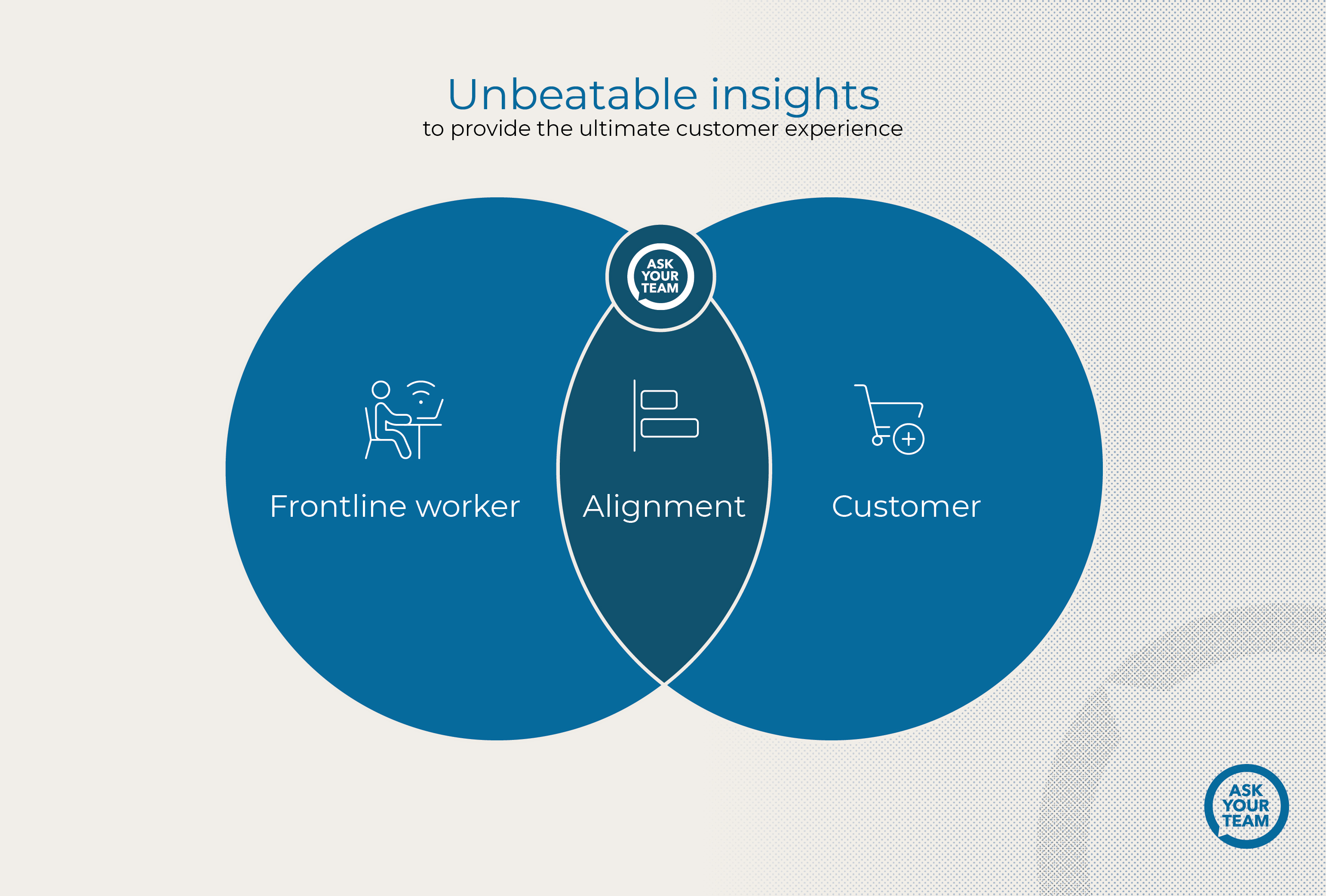Table of contents
Recommended for you

Growing community trust through continuous feedback cycles
Whether you are looking to improve your customer experience, increase productivity, revenue, or enhance your employee wellbeing, a regular feedback process can be one of the most powerful ways of finding out how best to do this.
Converting this feedback into focused actions is the crucial step and we are regularly asked for advice on how best to do this by clients. As Head of Product here at AskYourTeam, I am regularly involved in discussions around why taking action based on feedback is imperative to the ongoing improvement process for organisations. Here are my thoughts based on what we often discuss and observe with our clients.
Acting quickly and regularly based on focused insights provided by your employees or customers through every level of your organisation is the best way to ensure you are fostering a productive and enjoyable workplace.
Actions speak louder than words
There are three key steps to consider when collecting feedback that will help you implement sustainable improvement in your organisation:

This process is the same no matter if you run a large annual survey or a frequent series of smaller pulse or continuous surveys throughout the year. Acting quickly and regularly based on focused insights provided by your employees or customers through every level of your organisation is the best way to ensure you are fostering a productive and enjoyable workplace.
What are the most common reasons for lack of action?
1. Taking too long to share results from HR or senior leadership to management and the rest of the organisation.
Results are often analysed and reviewed by HR and/or the executive team before sharing the results more widely. This is common practice, but taking too long will reduce buy-in from your team leaders. Any momentum in the process gets lost. Focus on getting results into the hands of your team leaders as quickly as possible to get actions moving while results are hot off the press.
2. Understanding results and feedback – what do I do now?
Pressure to understand your survey results and perhaps having to process a large volume of feedback can make your managers feel overwhelmed. Even small, frequent surveys can generate vast amounts of information and make it hard to understand what the results mean for individual managers and what they can do about the feedback.
The best way to overcome any anxiety or confusion is to ensure the survey reports you share with your managers are clear and simple. The key for managers is to take action. We recommend minimising the amount of data to be processed so they can act on it, rather than overwhelming them.
Also, consider using a library of suggested actions to give your leaders a better indication of what they could do next.
3. Having conversations about feedback feels personal and intimidating.
Receiving personal feedback can leave you feeling vulnerable and reluctant to engage with your team. Studies show that the best way to boost people’s confidence is by providing guidance and support on how to facilitate constructive conversations. If the feedback is about a manager’s leadership style, HR should be prepared to support them with coaching or consider using a neutral third party to facilitate a conversation.
4. Other priorities come up, so we lose focus on making the changes that matter.
Focus attention on one key impact at a time. Most organisations are under the pump, so be realistic about what changes you can implement quickly.
Utilise available technology to support an efficient process. It doesn’t need to be overly elaborate –managers should be focused on taking action, not spending their time learning how to use the platform. We recommend using a tool that gives visibility of the actions taken and what impact they have had over time.
What are the risks of not taking action on your feedback?
Not taking any action or taking action but not communicating what has been done are equally detrimental. Not communicating what’s been done is especially common at a senior leadership level where most actions are undertaken are not always visible to all employees or a direct link between feedback and action is obscure. Let your employees know what you are doing as a leader to act on the feedback received.
Either way, employees and other stakeholders who believe nothing has been done with their feedback can perceive the survey process as a waste of time and can become increasingly reluctant to participate and provide their valuable feedback. Similarly, managers can be left feeling deflated and helpless under a barrage of their team’s feedback that never improves because they are not empowered or capable of addressing issues.
In summary, keeping things as simple and practical as possible to allow clear focus on what is most important to your people will drive engagement and – most crucially – action.









